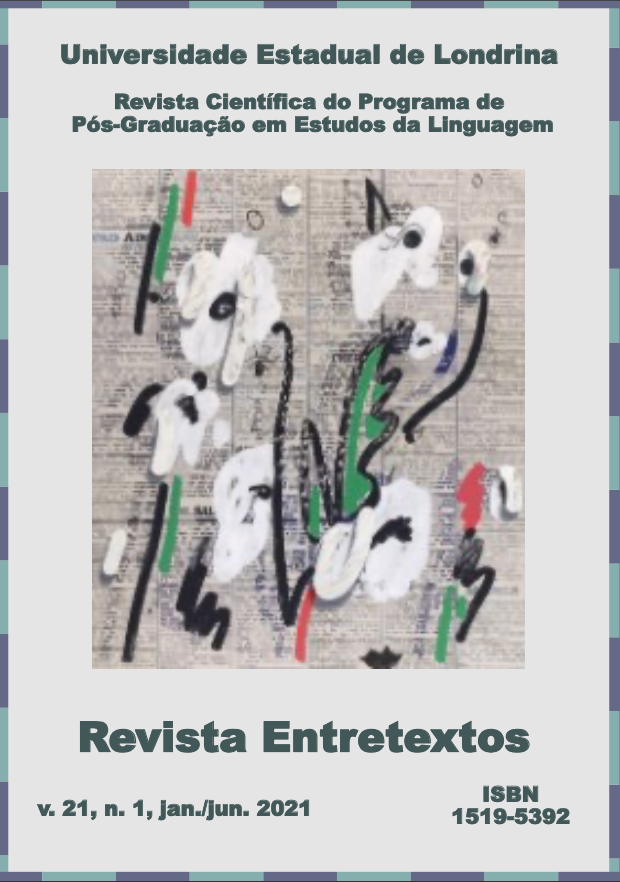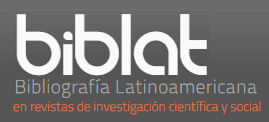International Women’s Day: ideological and argumentative aspects of Bolsonaro’s speech in his first year at presidency
DOI:
https://doi.org/10.5433/1519-5392.2021v21n1p203Keywords:
Ideology, Political discourse, International Women’s Day.Abstract
The discourse is the materialization of the individual's positioning, it is built from his interpellation by several ideologies in a certain socio-historical moment. The political discourse, in specific, enables the enunciator to use different scenographies (MAINGUENEAU, 2005) in order to talk to the audience. Therefore, through literature review, this paper aims to analyze argumentative and ideological aspects in Bolsonaro’s speech in the celebration of 2019 International Women’s Day, in order to discuss the ideology underlying his positionings, as well as the role of lexical selection in the spread of this ideology. The analysis showed that the president’s positioning is based on Christian values which mean that a woman’s fundamental role is to help the man and to raise their home. In this sense, lexical selection is settled as a tool that materialize positionings originated in this ideology, which break any neutrality assumed in the discourse. The words were used in a valuative sense, aiming to enhance the woman’s role as a helper both in society and family. Lexical selection, as a whole, was used in order to decrease formality and, consequently, approach the speaker and his audience.
Downloads
References
CHARAUDEAU, Patrick; MAINGUENEAU, Dominique. Dicionário de análise do discurso. 3. ed. São Paulo: Contexto, 2018.
KERBRAT-ORECCHIONI, Catherine. L’Enonciation: de la subjectivité dans le langage. Paris: Armand Colin, 1980.
KOCH, Ingedore Grunfeld Villaça. Argumentação e linguagem. 2. ed. São Paulo: Cortez, 1987.
KOCH, Ingedore Grunfeld Villaça. Introdução à linguística textual: trajetória e grandes temas. 2. ed. São Paulo: Martins Fontes, 2009.
LAPA, Manoel Rodrigues. Estilística da língua portuguesa. São Paulo: Martins Fontes, 1991.
MAINGUENEAU, Dominique. Ethos, cenografia, incorporação. In: AMOSSY, Ruth. (org.). Imagens de si no discurso: a construção do ethos. São Paulo: Contexto: 2005. p. 69-92.
OLIVEIRA, Esther Gomes. Aspectos ideológico-argumentativos em um conto de Judith Grossmann. In: OLIVEIRA, Esther Gomes de; SILVA, Suzete. (org.). Semântica e estilística: dimensões atuais do significado e do estilo. Homenagem a Nilce Sant'Anna Martins. Campinas, SP: Pontes Editores, 2014. p. 177-197.
ORLANDI, Eni P. Análise de discurso: princípios & procedimentos. São Paulo: Pontes Editores, 2001.
PASSARINHO, Nathalia; CALGARO, Fernanda. Por aclamação, PMDB oficializa rompimento com governo Dilma. G1, Brasília, 29 mar. 2016. Disponível em: http://g1.globo.com/politica/noticia/2016/03/por-aclamacao-pmdb-oficializa-rompimento-com-
governo-dilma.html. Acesso em: 25 jan. 2020.
ROTHWELL, James. Brazilian president Michel Temer attacked for praising housekeeping skills in International Women's Day speech. The Telegraph, [s. l.], 9 mar. 2017. Disponível em:
https://www.telegraph.co.uk/news/2017/03/09/brazilian-president-michel-temer-attacked-
praising-housekeeping/. Acesso em: 25 jan. 2020.
Downloads
Published
How to Cite
Issue
Section
License
Entretextos adota a Licença Creative Commons Attribution 4.0 International, portanto, os direitos autorais relativos aos artigos publicados são do(s) autor (es).
Sob essa licença é possível: Compartilhar - copiar e redistribuir o material em qualquer suporte ou formato. Adaptar - remixar, transformar, e criar a partir do material, atribuindo o devido crédito e prover um link para a licença e indicar se mudanças foram feitas.




















